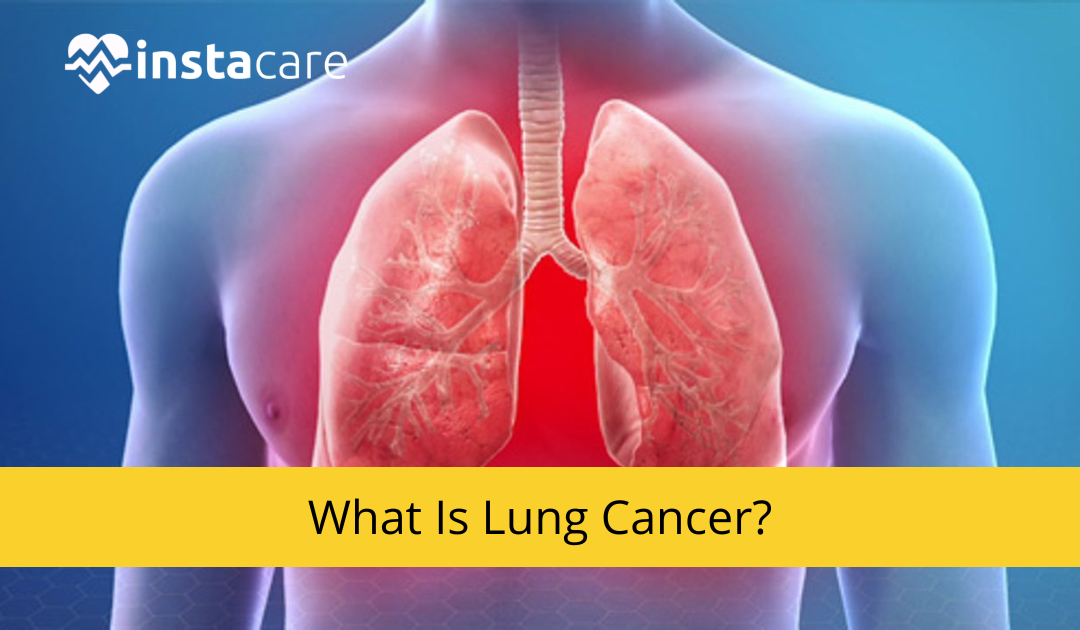Lung cancer is a kind of cancer that occurs in the lungs. The lungs are two spongy organs in your chest that absorb oxygen and expel carbon dioxide as you breathe.
Various Types Of Lungs Cancer To Know About
Doctors classify lung cancer into two basic categories depending on how the cells look under a microscope. Depending on your lung cancer type, your doctor will provide therapy suggestions. Lung cancer is classified into three types:
1- Small cell lung cancer:
Lung cancer with little cells Small cell lung cancer, less prevalent than non-small cell lung cancer, affects virtually exclusively heavy smokers.
2- Non-small cell lung cancer (NSCLC):
Non-small cell lung cancer is a catch-all phrase for various lung malignancies. It includes squamous cell carcinoma, large cell carcinoma, and adenocarcinoma.
3- Mesothelioma:
Although not officially a kind of lung cancer, mesothelioma exhibits many of the same symptoms. Malignant mesothelioma is a cancerous tumor that forms in the linings of the organs, most commonly the pleura and occasionally the peritoneum.
View More: 7 Foods That Can Help To Boost Your Immune System
Probable Symptoms
There are generally no indications or symptoms of lung cancer in its early stages. There are generally no indications or symptoms of lung cancer in its early stages. Lung cancer signs and symptoms often appear when the illness is advanced. Symptoms and indicators of lung cancer may include:
- A refusing new cough
- Losing weight without making an effort
- Even a modest quantity of blood coughed up
- Headache
- Breathing difficulty
- Bone ache
- Chest ache
- Hoarseness
Furthermore, lung cancer tumors can occasionally emit a chemical comparable to hormones, resulting in a wide range of symptoms known as paraneoplastic syndrome. Among the symptoms are:
- elevated blood sugar levels
- muscle wasting
- seizures
- vomiting and nausea
- confusion
- elevated blood pressure
What Causes Lungs Cancer?
Most lung cancers are caused by smoking, both in smokers and in persons exposed to secondhand smoke. However, lung cancer can arise in persons who have never smoked or who have never been exposed to secondhand smoke for an extended period. In many circumstances, there may be no apparent etiology of lung cancer. Breathing in dangerous compounds may potentially raise your risk of lung cancer. Such as:
- cadmium
- nickel
- asbestos
- uranium
- chromium
- radon
- some petroleum products
- arsenic
View More: Amazing Miswak Benefits
Threats Due To Lung Cancer
- Breathing difficulty: Shortness of breath can occur in people with lung cancer if the malignancy spreads to the central airways. Lung cancer can also cause fluid to build up around the lungs, making it difficult for the afflicted lung to inflate when you inhale fully.
- Coughing blood: Lung cancer can cause airway bleeding, which can cause you to cough up blood (hemoptysis). The bleeding can become severe at times. There are treatments available to control bleeding.
- Pain: can be caused by advanced lung cancer that has progressed to the lining of the lung or another part of the body, such as the bone. Inform your doctor if you are experiencing discomfort since several pain-controlling medications are available.
- Fluid in the lungs (pleural effusion): Lung cancer can cause fluid to build up in the area in the chest cavity that surrounds the damaged lung (pleural space).
- Shortness of breath: It can result from fluid accumulation in the chest. There are treatments available to remove the fluid from your chest and lessen the likelihood of recurrent pleural effusion.
Lung Cancer Diagnosis
The doctor will want to review your medical history and any symptoms you're experiencing. To confirm the diagnosis, more tests will be performed. These might include:
Imaging tests: X-rays, MRIs, CT scans, and PET scans can all reveal an abnormal mass. These scans provide more information and detect tiny lesions.
Sputum cytology: A microscopic examination can reveal whether cancer cells are present if you cough and create phlegm.
Bronchoscopy: While you are sedated, a lighted tube is sent down your throat and into your lungs, allowing a better look at your lung tissue.
Conclusion
The leading cause of cancer fatalities globally is lung cancer. Persons who smoke are at a higher risk of developing lung cancer, but it can also occur in people who have never smoked. The risk of lung cancer rises with the quantity and length of cigarettes smoked. You can dramatically lower your chances of developing lung cancer if you quit smoking, even if you have been smoking for many years.
Please book an appointment with the Best Lung Surgeon in Lahore, Karachi, Islamabad, and all major cities of Pakistan through InstaCare, or call our helpline at 03100002273 to find the verified doctor for your disease.











